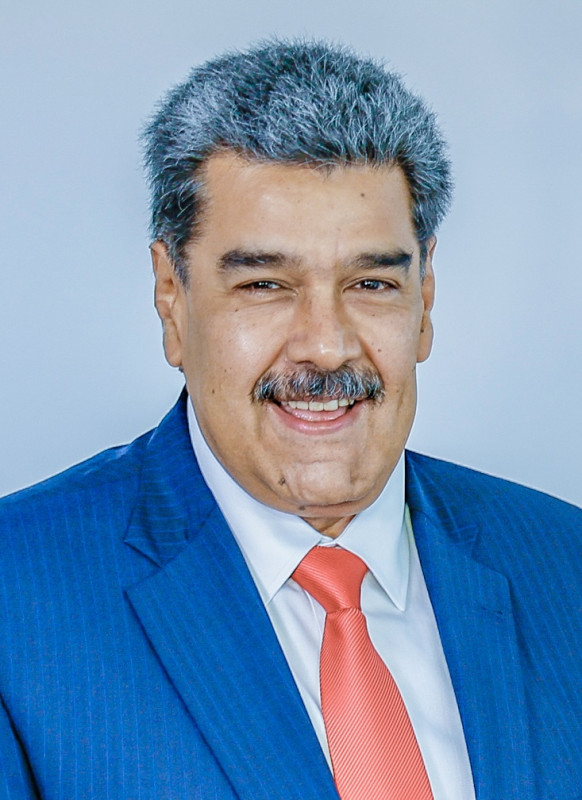Kyrgyzstan, officially the Kyrgyz Republic, is a landlocked Central Asian nation situated in the Tian Shan and Pamir mountains. It shares borders with Kazakhstan, Uzbekistan, Tajikistan, and China. Bishkek is its capital and largest city, located near the Kazakhstan border. The population is over 7 million, predominantly ethnic Kyrgyz, with Uzbek and Russian minorities.
1916: 1916 uprising against Tsarist Russia
In 1916, the Urkun uprising against Tsarist Russia occurred.
1916: 1916 rebellion against Russian rule
In 1916, the suppression of the rebellion against Russian rule in Central Asia caused many Kyrgyz to later migrate to China.
1919: Soviet power established
In 1919, Soviet power was initially established in the region of Kyrgyzstan, and the Kara-Kyrgyz Autonomous Oblast was created within the Russian Soviet Federative Socialist Republic (SFSR).
1922: Union Treaty
In December 1991, the Belavezha Accords denounced the Union Treaty of 1922.
1928: End of New Economic Policy
Around 1928, the period of the New Economic Policy (NEP) ended. The Bolsheviks tried to establish a tax system with higher taxes for nomads and divided Central Asia into five nation-states. Kyrgyzstan developed in literacy, cultural, educational, and social life. Economic and social development also was notable. Under Stalin a focus was put on Kyrgyz national identity.
1928: Start of Soviet five-year plans
By the end of the 1920s, specifically 1928, the Soviet Union developed a series of five-year plans, centered around industrialization and the collectivization of agriculture. Russian settlers acquired the best pasture land, causing hardship for the original inhabitants.
1928: Introduction of Latin script
In 1928, the Latin script was introduced and adopted in Kyrgyzstan on Stalin's orders.
1932: Nomad and peasant resistance
Between 1928 and 1932, nomads and peasants resisted Soviet policies through passive resistance and guerrilla opposition in the Kirgiziya area.
1934: National Library of the Kyrgyz Republic established
The National Library of the Kyrgyz Republic, the oldest library in the country, was established in 1934.
December 1936: Kirghiz Soviet Socialist Republic established
On 5 December 1936, the Kirghiz Soviet Socialist Republic was established as a constituent Union Republic of the Soviet Union.
1936: Kirghiz Soviet Socialist Republic formed
In 1936, the Kirghiz Soviet Socialist Republic was formed, becoming a constituent republic of the Soviet Union.
1941: Replacement by Cyrillic script
In 1941, the Latin script was replaced by Cyrillic script in Kyrgyzstan.
1979: Ethnic Kyrgyz population percentage
In 1979, the percentage of ethnic Kyrgyz was around 50% in Kyrgyzstan.
1989: Last Soviet census
According to the last Soviet census in 1989, ethnic Kyrgyz made up only 22% of the residents of Frunze (now Bishkek), while more than 60% were Russians, Ukrainians, and other Slavic nations.
1989: Emergence of groups to address housing crisis
In 1989, several unofficial political groups emerged to deal with the acute housing crisis and were permitted to function.
1989: Percentage of Russians
In 1989, the percentage of Russians was a fraction of what it is today in Kyrgyzstan.
1989: German population
In 1989, there were 101,000 Germans in Kyrgyzstan.
June 1990: Ethnic tensions in Osh Region
In June 1990, ethnic tensions between Uzbeks and Kyrgyz surfaced in the Osh Region (southern Kyrgyzstan), leading to 186 deaths after attempts to appropriate Uzbek collective farms for housing development triggered the Osh Riots.
December 1990: Republic name change
On 15 December 1990, the Supreme Soviet voted to change the republic's name to the Republic of Kyrgyzstan.
1990: Economic impact of Soviet Union collapse
In 1990, approximately 98% of Kyrgyz exports were directed to other parts of the Soviet Union, causing the Kyrgyz economy to be severely affected by its collapse.
1990: Askar Akayev elected president
In 1990, pro-independence candidate Askar Akayev was elected president of Kyrgyzstan, following Mikhail Gorbachev's democratic reforms in the USSR.
February 1991: Name of capital changed
In February 1991, the name of the capital, Frunze, was changed back to its pre-revolutionary name of Bishkek.
March 1991: Referendum on the preservation of the Soviet Union
In March 1991, a referendum on the preservation of the Soviet Union was held, with 88.7% of voters approving the proposal to retain the Soviet Union as a "renewed federation".
August 1991: Kyrgyzstan declares independence
On 31 August 1991, Kyrgyzstan declared its independence from the USSR, establishing a democratic government and attaining sovereignty as a nation-state after the breakup of the Soviet Union.
August 1991: Declaration of independence
On 31 August 1991, the Supreme Soviet voted, declaring independence from the Soviet Union as the Republic of Kyrgyzstan.
October 1991: Akayev elected president
In October 1991, Askar Akayev ran unopposed and was elected president of the new independent republic by direct ballot, receiving 95 percent of the votes cast and signed the Treaty of the Economic Community with representatives of seven other Republics.
December 1991: Alma-Ata Protocols and full independence
On 21 December 1991, Kyrgyzstan agreed with the other four Central Asian Republics to the Alma-Ata Protocols, formally entering the Commonwealth. Kyrgyzstan gained full independence on 25 December 1991.
December 1991: Belavezha Accords signed
On 8 December 1991, the new leaders of three out of four Soviet Union's founding republics, Russia, Belarus and Ukraine, signed the Belavezha Accords, denouncing the Union Treaty of 1922, declaring that the Union would cease to exist and proclaiming the Commonwealth of Independent States (CIS) in its place.
1991: Kyrgyz adopted as state language
After the dissolution of the Soviet Union, Kyrgyz was adopted as the state language of Kyrgyzstan in 1991.
1991: Independence Day
Kyrgyzstan celebrates its Independence Day annually on 31 August, the anniversary of its declaration of independence in 1991.
1991: Kyrgyzstan Independence
Many ethnic Kyrgyz born after Kyrgyz independence in 1991 can't speak Kyrgyz, but only Russian, according to a Bishkek resident.
1992: Flag of Soviet Union
Before 1992, under Soviet rule, Kyrgyzstan's flag was that of the Soviet Union, featuring two big blue stripes and a thin white stripe in the middle.
1992: Joined UN and OSCE
In 1992, Kyrgyzstan joined the United Nations and the Organization for Security and Co-operation in Europe (OSCE).
1992: Football Federation of Kyrgyz Republic founded
In 1992, following the split of the Soviet Union, the Football Federation of Kyrgyz Republic was founded to serve as the official governing body for football in Kyrgyzstan.
May 1993: Name changed to Kyrgyz Republic
On 5 May 1993, the official name changed from the Republic of Kyrgyzstan to the Kyrgyz Republic following the adoption of a new constitution.
1993: Population of Uzbek enclaves
In 1993, the population of the Sokh enclave was 42,800, and the population of Shakhimardan was 5,100.
1993: Constitution defines form of government
The 1993 constitution defined the form of government as a democratic unicameral republic with a president, prime minister, and unicameral parliament.
1995: Kyrgyzstan's national basketball team performs at Asian Basketball Championship
The Kyrgyzstan national basketball team achieved its best performance at the official 1995 Asian Basketball Championship, finishing ahead of teams including Iran, Philippines, and Jordan.
December 1998: Accession to the WTO
On 20 December 1998, reforms led to Kyrgyzstan's accession to the World Trade Organization (WTO).
1998: WTO membership
In 1998, Kyrgyzstan became a member of the World Trade Organization (WTO).
1998: Economic performance improves
Since 1998, economic performance in Kyrgyzstan has improved considerably.
2000: Aidyn Smagulov wins bronze in judo at Sydney Olympics
In 2000 at the Sydney Summer Olympics, Aidyn Smagulov won the bronze medal in the men's 60 kg judo competition, marking Kyrgyzstan's first-ever Olympic medal.
2000: Russian adopted as official language
In 2000, Kyrgyzstan adopted Russian as an official language.
2001: Manas Air Base hosting US military
Since 2001, the Manas Air Base has been hosting approximately 1,000 U.S. military personnel.
March 2002: Aksy protests
In March 2002, in the southern district of Aksy, five people protesting the arbitrary arrest of an opposition politician were shot dead by police, sparking nationwide protests.
2002: Agriculture accounted for 35.6% of GDP
In 2002, agriculture accounted for 35.6% of GDP and about half of employment in Kyrgyzstan.
February 2003: Referendum marred by irregularities
In February 2003, a referendum was held, but marred by voting irregularities.
March 2005: Parliamentary elections
In February and March 2005, parliamentary elections were held, which the opposition and international observers criticized for alleged irregularities.
April 2005: Tulip Revolution
In April 2005, widespread protests erupted, leading to the ousting of President Askar Akayev, who fled the country and resigned. This series of events became known as the Tulip Revolution.
July 2005: Kurmanbek Bakiyev assumes presidency
In July 2005, Kurmanbek Bakiyev assumed the presidency after winning the presidential election with a significant majority.
July 2005: Bakiyev wins presidential election
On 10 July 2005, acting president Bakiyev won the presidential election in a landslide, with 88.9% of the vote, and was inaugurated on 14 August.
2005: 2005 Agreement on broadcast KTRK
In 2005 an agreement was made on broadcast KTRK that requires the retransmission of Radio Free Europe/Radio Liberty program.
November 2006: Protests against President Bakiyev
In November 2006, large-scale protests took place in Bishkek against President Bakiyev, with opposition leaders accusing him of failing to fulfill his election promises.
2006: Large-scale protests
In 2006, large-scale protests occurred, with citizens calling for a reduction in presidential powers and increased governmental transparency.
2006: Tourism at Lake Issyk-Kul
In 2006, the number of tourists visiting Lake Issyk-Kul was more than a million a year.
July 2007: Islam taking root
During a July 2007 interview, Bermet Akayeva stated that Islam is increasingly taking root across Kyrgyzstan.
2007: Large-scale protests
In 2007, large-scale protests occurred, with citizens calling for a reduction in presidential powers and increased governmental transparency.
2007: Tourism at Lake Issyk-Kul
In 2007, the number of tourists visiting Lake Issyk-Kul was more than a million a year.
September 2008: President Bakiyev criticized RFE/RL program
In September 2008, President Bakiyev criticized an RFE/RL program, while KTRK told RFE/RL that its programming was too negative.
October 2008: KTRK stopped retransmitting RFE/RL programming
In October 2008, KTRK stopped retransmitting RFE/RL programming.
November 2008: Kyrgyz parliament passes law increasing minimum adherents for religious recognition
In November 2008, the Kyrgyz parliament unanimously passed a law increasing the minimum number of adherents for recognizing a religion from 10 to 200. The law also outlawed "aggressive action aimed at proselytism" and banned religious activity in schools and activity by unregistered organizations.
December 2008: KTRK requires prior submission of RFE/RL programs
In December 2008, KTRK announced that it would require prior submission of Radio Free Europe/Radio Liberty programmes.
2008: Kyrgyzstani wrestlers win medals at Summer Olympic Games
During the 2008 Summer Olympic Games, Kyrgyzstani wrestlers won three medals in Greco-Roman and freestyle wrestling.
January 2009: President Bakiyev signs law on religious recognition
On January 12, 2009, President Kurmanbek Bakiyev signed into law the bill passed in November 2008, which increased the minimum number of adherents for religious recognition and outlawed certain religious activities.
February 2009: Closure of Manas Air Base announced
On 3 February 2009, President Bakiyev announced the imminent closure of the Manas Air Base, the only US military base remaining in Central Asia. The closure was approved by Parliament on 19 February 2009.
June 2009: Decision to close Manas Air Base reversed
In June 2009, the decision to close Manas Air Base was reversed, allowing the Americans to remain under a new contract with increased rent.
2009: Muslim population
A 2009 Pew Research Center report indicated 86.3% of Kyrgyzstan's population adhering to Islam.
2009: Eviction of US military from Manas Air Base
In 2009, Bakiyev announced the eviction of the U.S. military from the Manas Air Base.
2009: First Ice Hockey Championship was organized
In 2009, the first Ice Hockey Championship was organized in Kyrgyzstan, marking a turning point for the sport's popularity in the country.
2009: Increase in electricity and heating tariffs
In 2009, the government announced significant increases in electricity and heating tariffs, leading to public discontent.
April 2010: Protests against Bakiyev's administration
In April 2010, widespread protests erupted against President Kurmanbek Bakiyev's administration, leading to his ousting and the establishment of a provisional government.
June 2010: Referendum on new constitution
In June 2010, a referendum was held to adopt a new constitution aimed at reducing presidential powers and enhancing parliamentary authority. The referendum passed with approximately 90% approval and a 70% voter turnout.
June 2010: Ethnic clashes in Osh and Jalal-Abad
In June 2010, violent ethnic clashes occurred in the southern cities of Osh and Jalal-Abad between Kyrgyz and Uzbek communities, resulting in over 400 deaths and displacing thousands.
October 2010: Parliamentary elections
In October 2010, Kyrgyzstan held its first parliamentary elections under the new constitutional framework, noted for their peaceful conduct.
2010: Syr Darya no longer reaches the Aral Sea
As of 2010, the Syr Darya no longer reaches the Aral Sea, as its water is withdrawn upstream to irrigate cotton fields.
2010: Askarov sentenced to life in prison
In 2010, Kyrgyzstani activist and journalist Azimzhan Askarov was sentenced to life in prison.
2010: Revolution and Bakiyev's exile
In 2010, another revolution erupted in the country, forcing President Bakiyev and his family to flee to Kazakhstan and then seek asylum in Belarus. Roza Otunbayeva was appointed interim president.
July 2011: Kyrgyzstan men's national ice hockey team joins IIHF
In July 2011, the Kyrgyzstan men's national ice hockey team officially joined the IIHF (International Ice Hockey Federation).
December 2011: Atambayev sworn in as president
On 1 December 2011, Almazbek Atambayev was sworn in as president, and Omurbek Babanov was appointed prime minister on the same day, confirmed on 23 December 2011.
2011: Almazbek Atambayev elected president
In 2011, Almazbek Atambayev was elected president of Kyrgyzstan, serving until 2017.
2012: Pew survey report
A 2012 Pew survey report showed that only 23% of respondents to a questionnaire chose to identify themselves as Sunni, with 64% volunteering that they were "just a Muslim".
2012: Kyrgyzstan participates in Bandy World Championship
In 2012, the Kyrgyz national team played in the Bandy World Championship for the first time.
June 2013: Law banning women's travel passed
In June 2013, the Kyrgyz parliament passed a law banning women under the age of 23 from traveling abroad without a parent or guardian, citing purposes of "increased morality and preservation of the gene pool".
2013: Gallup poll on collapse of Soviet Union
According to a 2013 Gallup poll, 62% of Kyrgyz people say that the collapse of the Soviet Union harmed their country, while only 16% said that the collapse benefitted it.
2013: Launch of the Belt and Road Initiative
After Beijing launched the Belt and Road Initiative (BRI) in 2013, China expanded its economic presence and initiated infrastructure projects in Kyrgyzstan.
2013: Ethnic Kyrgyz population increase
By 2013, the percentage of ethnic Kyrgyz in Kyrgyzstan had increased to over 70%.
2013: World Bank estimated climate change impact
In 2013, the World Bank estimated a likely increase of 2 °C in average mean temperature by 2060 and of 4–5 °C by 2100 in Kyrgyzstan.
June 2014: Closure of Transit Center at Manas
In June 2014, the Transit Center at Manas, a facility leased by the US Armed Forces at Manas International Airport near Bishkek, was closed.
October 2014: Law imposing jail terms on gay-rights activists passed
In October 2014, American diplomats expressed concern when Kyrgyzstan lawmakers passed a law imposing jail terms on gay-rights activists, journalists, and others who create "a positive attitude toward non-traditional sexual relations".
2014: Russifying names
According to a 2014 RFE/RL article, thousands of Kyrgyz are russifying their names every year (around 40,000), mostly for career prospects, and to remove themselves from Russian blacklists.
2014: US military withdrew from Manas Air Base
The US military fully withdrew from Manas Air Base in 2014.
2015: Kyrgyzstan joins Eurasian Economic Union
In 2015, Kyrgyzstan became a full member of the Eurasian Economic Union (EES) after abolishing customs controls along its border with Kazakhstan.
2015: Joined Eurasian Economic Union
In 2015, Kyrgyzstan joined the Eurasian Economic Union (EAEU).
September 2016: University of Central Asia launched in Naryn
In September 2016, the University of Central Asia was launched in Naryn, Kyrgyzstan.
December 2016: Abolition of military courts
In December 2016, Kyrgyzstan abolished military courts to streamline the judicial system and improve civilian oversight.
2016: Centennial of the 1916 uprising
In 2016, Kyrgyzstan commemorated the centennial of the 1916 uprising against Tsarist Russia, known as Urkun, with the unveiling of a monument at the Ata-Beyit memorial complex.
2016: Corruption Perception Index
The 2016 Corruption Perception Index for Kyrgyzstan is 28 on a scale of 0 (most corrupt) to 100 (least corrupt).
January 2017: Askarov's life sentence reinstated
On January 24, 2017, a Kyrgyz court reinstated a sentence of life imprisonment for Kyrgyzstani activist and journalist Azimzhan Askarov.
October 2017: Sooronbay Jeenbekov elected president
In October 2017, Sooronbay Jeenbekov was elected as the new President of Kyrgyzstan.
2017: Sooronbay Jeenbekov elected president
In 2017, Sooronbay Jeenbekov succeeded Atambayev as president of Kyrgyzstan.
2017: Muslim population
The CIA World Factbook estimates that as of 2017, 90% of the population in Kyrgyzstan is Muslim.
August 2019: Operation against Atambayev's residence
On 7 August 2019, the Special Forces of Kyrgyzstan launched an operation against the residence of former President Almazbek Atambayev.
2019: Forest Landscape Integrity Index
In 2019, Kyrgyzstan had a Forest Landscape Integrity Index mean score of 8.86/10, ranking it 13th globally out of 172 countries.
August 2020: Population estimate
In August 2020, Kyrgyzstan's population was estimated at 6,586,600.
October 2020: President Jeenbekov Resigned
In October 2020, President Sooronbay Jeenbekov resigned after protests caused by irregularities in parliamentary elections on 4 October 2020.
October 2020: Widespread protests and political changes
In October 2020, widespread protests occurred in response to disputed parliamentary election results, leading to the annulment of the elections and the resignation of President Sooronbay Jeenbekov. Sadyr Japarov was released and appointed as interim president and prime minister.
2020: World Values Survey on language spoken at home
According to the 2020 World Values Survey, Russian was the language spoken at home for 55.6% of the population of Bishkek, and Kyrgyz was the second with 43.6%.
2020: Kyrgyzstani wrestlers win medals at Summer Olympic Games
During the 2020 Summer Olympic Games, Kyrgyzstani wrestlers won three medals in Greco-Roman and freestyle wrestling.
2020: Democracy Index ranking
In 2020, Kyrgyzstan was classified as a "hybrid regime" in the Democracy Index, ranking 107th out of 167. It was also ranked "partly free" in the Freedom in the World report with a score of 39/100.
January 2021: Sadyr Japarov elected president
In January 2021, Sadyr Japarov was elected as the new president after winning the presidential election by a landslide.
January 2021: Constitutional reforms approved
In January 2021, a referendum approved constitutional reforms that shifted the governance structure to a presidential system, expanding the president's powers.
March 2021: Russia announces plans to create new Russian-language schools in Kyrgyzstan
In March 2021, Russia announced plans to establish approximately 30 new Russian-language schools in Kyrgyzstan, with teachers from Russia also working in these schools.
April 2021: Constitutional referendum approved
In April 2021, the majority of voters approved in the constitutional referendum a new constitution that will give new powers to the president, significantly strengthening the power of the presidency.
2021: Akylbek Japarov served as Prime Minister since 2021
Akylbek Japarov served as the prime minister since 2021, until his dismissal in December 2024.
2021: Reversion to presidential system
In 2021, Kyrgyzstan reverted to a presidential system after being a unitary presidential republic, unitary parliamentary republic and a semi-presidential republic since its independence.
2021: Freedom in the World report ranking
In 2021, Kyrgyzstan was ranked "not free" in the Freedom in the World report with a score of 28/100.
2021: Violent clashes with Tajikistan
In 2021, Kyrgyzstan's longstanding border disputes with neighboring Tajikistan escalated into violent clashes, notably around the town of Batken.
July 2022: 6th International Sports Festival Pearl of Kyrgyzstan held
From June 15 to July 3, 2022, the 6th International Sports Festival Pearl of Kyrgyzstan was held in the Issyk-Kul region.
September 2022: Conflict with Tajikistan around Batken
In September 2022, Kyrgyzstan's border disputes with Tajikistan escalated into a six-day conflict around the town of Batken.
September 2022: XXI International Issyk-Kul Sports Games held
In September 2022, the XXI International Issyk-Kul Sports Games (SCO + CIS) took place in Baktuu-Dolonotu village (Issyk-Kul).
2022: Boost to local economy
After the 2022 sanctions on Russia, several regional supply routes were redirected through Kyrgyzstan, boosting the local economy.
2022: Construction began on railway extension from Balykchy to Karakeche
In 2022, construction began on a new 186 km extension of the existing railway from Balykchy to Karakeche, primarily to carry coal from mines at Karakeche to Bishkek.
2022: Announcement of China–Kyrgyzstan–Uzbekistan Railway construction
In 2022, the planned construction of a 523 km China–Kyrgyzstan–Uzbekistan Railway was announced as part of China's Belt and Road Initiative.
2022: Mennonite population
In 2022, there were around 200 Mennonites in Kyrgyzstan as part of the historic Kyrgyzstan German minority.
2022: Strong macroeconomic performance
Kyrgyzstan demonstrated strong macroeconomic performance between 2022 and 2024.
2022: Rapid economic growth
Kyrgyzstan registered rapid economic growth over 2022–2024, averaging 9% annually in real terms.
April 2023: Proposal to change official script
In April 2023, Russia suspended dairy exports to Kyrgyzstan after the chairman of Kyrgyzstan's National Commission for the State Language and Language Policies, Kanybek Osmonaliev, proposed to change the official script from Cyrillic to Latin to bring the country in line with other Turkic-speaking nations, leading to a reprimand from President Sadyr Japarov who clarified there were no plans to do so.
June 2023: Railway between Balykchy and Bishkek officially opened
In June 2023, a railway between Balykchy and Bishkek was officially opened.
2023: Number of schools and educational institutions in Kyrgyzstan
As of 2023, Kyrgyzstan had 4,989 primary and secondary schools, including 445 in Bishkek, with the majority (4,537) being public schools. The country also had 58 higher educational institutions and universities, comprising 42 public and 16 private ones.
2023: Fiscal surplus
In 2023, Kyrgyzstan maintained a fiscal surplus for the first year out of two consecutive years.
February 2024: Kloop ordered shut down
In February 2024, the independent investigative media organization Kloop was ordered shut down by the Kyrgyz courts, drawing criticism within the country and abroad.
April 2024: "Foreign representatives" law came into effect
In April 2024, a "foreign representatives" law came into effect in Kyrgyzstan, imposing strict government oversight on NGOs receiving foreign funding.
December 2024: Prime Minister Akylbek Japarov Dismissed
In December 2024, President Japarov dismissed Prime Minister Akylbek Japarov, who had served since 2021.
2024: Global Hunger Index
In 2024, Kyrgyzstan had a score of 6.8 in the Global Hunger Index (GHI), ranking 36th among 127 countries, with a hunger level classified as low.
2024: Fiscal surplus
In 2024, Kyrgyzstan maintained a fiscal surplus for the second consecutive year.
2024: Rapid economic growth
Kyrgyzstan registered rapid economic growth over 2022–2024, averaging 9% annually in real terms.
March 2025: Border Agreement Signed with Tajikistan
In March 2025, Presidents Japarov and Emomali Rahmon of Tajikistan signed an agreement to demarcate their shared border, aiming to resolve the territorial conflicts and reopen transportation links.
July 2025: Construction of China–Kyrgyzstan–Uzbekistan Railway set to begin
Construction of the 523 km China–Kyrgyzstan–Uzbekistan Railway is set to begin in July 2025.
2025: Bishkek Population in 2025
As of 2025, Bishkek, the capital of Kyrgyzstan, has a population of 1,321,900 inhabitants.
2025: Global Innovation Index ranking
In 2025, Kyrgyzstan was ranked 96th in the Global Innovation Index.
2060: Projected temperature increase by 2060
By 2060, the World Bank estimated a likely increase of 2 °C in average mean temperature in Kyrgyzstan.
2076: Temperature increase from 2076 to 2096
From 2076 to 2096, A significant warming trend in Kyrgyzstan with a projected increase of 6°C under the Shared Socioeconomic Pathway (SSP) scenario SSP5-8.5.
2096: Projected temperature increase by 2096
From 2076 to 2096, A significant warming trend in Kyrgyzstan with a projected increase of 6°C under the Shared Socioeconomic Pathway (SSP) scenario SSP5-8.5.
Mentioned in this timeline

Basketball is a team sport played on a rectangular court...
Ukraine is a country in Eastern Europe the second-largest on...
The Union of Soviet Socialist Republics USSR existed from to...
Germany officially the Federal Republic of Germany is a nation...
China officially the People's Republic of China is an East...
Belarus is a landlocked country in Eastern Europe bordered by...
Trending

6 minutes ago Space Force Upgrades, Battle Management, and Role in Raids Spark Resource Push
6 minutes ago Kootenai County Deputies and Firefighter Honored with Medals of Honor for Bravery

6 minutes ago Venezuela's history, US aggression, and Trump's oil interests fuel ongoing tensions with Nicolás Maduro.

Delcy Elo na Rodr guez G mez is a Venezuelan lawyer diplomat and politician currently serving as the acting president...

7 minutes ago Witkoff discusses Iran's nuclear program and Trump's approach amidst ongoing protests.

1 hour ago Howard Lutnick Faces Scrutiny Over Epstein Ties; College Library Name in Question.
Popular

Jesse Jackson is an American civil rights activist politician and...

Susan Rice is an American diplomat and public official prominent...

Barack Obama the th U S President - was the...

Michael Joseph Jackson the King of Pop was a highly...

Bernie Sanders is a prominent American politician currently serving as...

XXXTentacion born Jahseh Dwayne Ricardo Onfroy was a controversial yet...